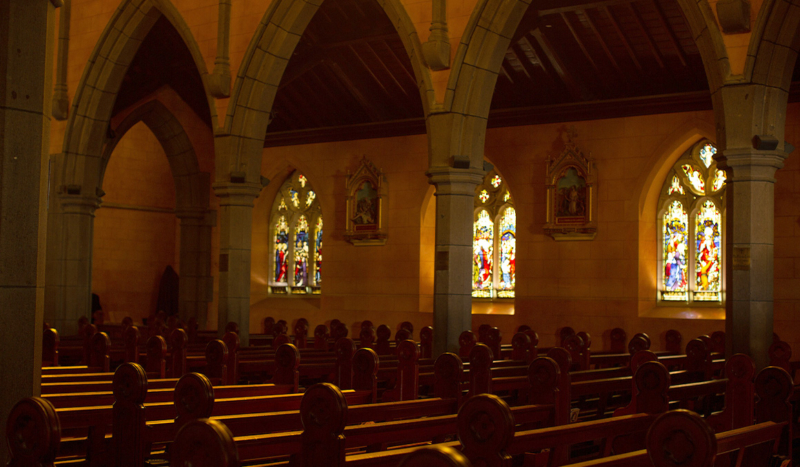
Interior of St. Patrick's Cathedral in Ballarat, Australia / Adobe Stock
CV NEWS FEED // The Catholic Diocese of Ballarat, Australia, cannot be held liable for the sexual abuse committed by Fr. Bryan Coffey, a non-diocesan priest, the country’s highest court has ruled, overturning an earlier decision by the Supreme Court of Victoria.
Nine.com.au reported that the November 13 ruling came after a man, known as DP in court records, filed a lawsuit against the Diocese and Ballarat Bishop Paul Bird, claiming more than $1.5 million in damages for loss of earnings.
Fr. Coffey was accused of sexually abusing DP in 1971 at his parents’ home in Port Fairy, which is in the state of Victoria. The priest was later convicted in 1999 on several charges of sexual abuse, including those DP brought against him. Fr. Coffey is now deceased.
In 2021, Justice Jack Forrest of Victoria’s Supreme Court ruled that the church held vicarious liability due to the close relationship between the bishop, the Diocese, and the community. He awarded DP $200,000 in damages for pain and suffering, $10,000 for medical expenses, and $20,000 for additional damages, The Age reported.
However, the High Court of Australia reversed the decision to hold the Diocese liable, clarifying that current legislation does not impose vicarious liability in this instance since the priest was not classified as an employee of the Diocese.
“This is the first time this Court has been asked to consider whether, absent a relationship of employment between a wrongdoer and a defendant, a diocese or a bishop may be held vicariously liable for the unlawful actions of a priest who sexually abuses a child,” the ruling stated.
The court ultimately concluded that “expanding the [vicarious liability] doctrine to accommodate relationships that are ‘akin to employment’ would produce uncertainty and indeterminacy.”
Bishop Bird expressed gratitude to the High Court for its “careful consideration of these complex areas of law” and stated that the Diocese is reviewing the judgment and its implications, Cath News reported.

